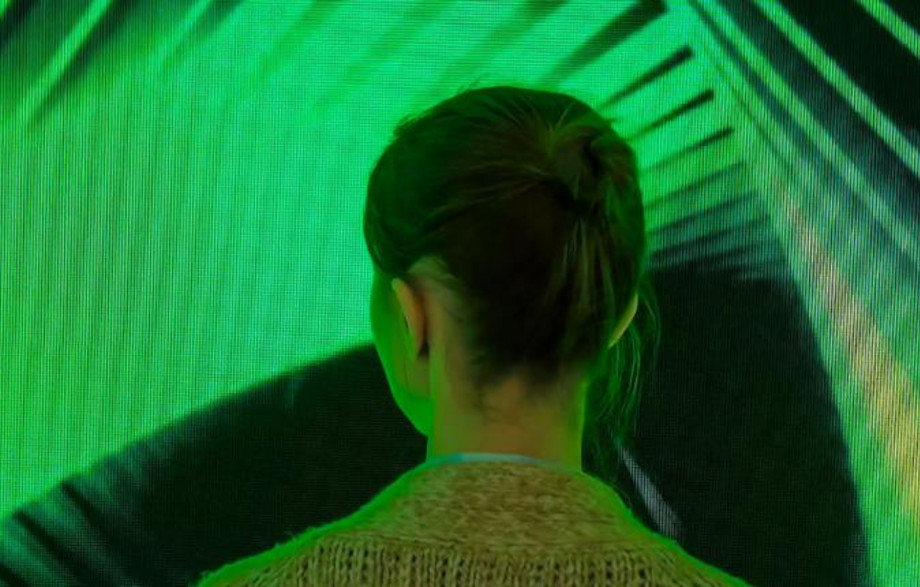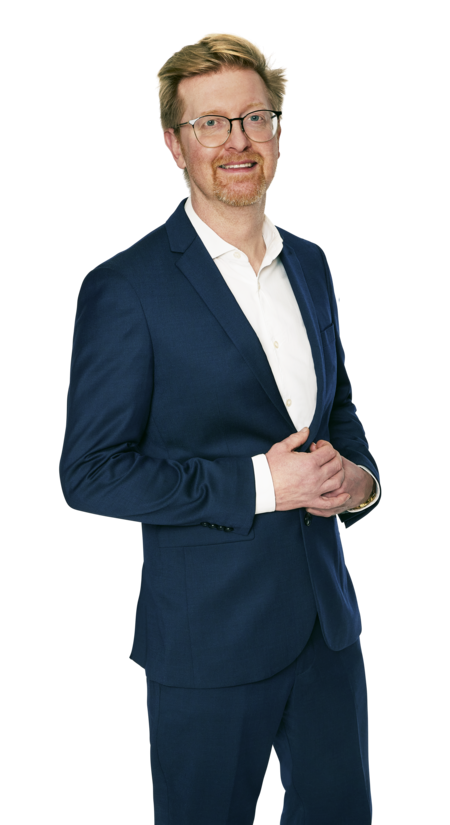Human sciences and hands-on know-how to solve societal challenges

19.11.2020 l More news
Five interdisciplinary research and practice projects will deliver new insights and solutions to current societal challenges – from the social exposure of refugees and exclusionary dark design in urban spaces to the consequences of hearing loss. The projects have received grants totalling DKK 29.5 million from VELUX FONDEN’s HUMpraxis programme.
Modern life is lived in increasingly complex societies. Through the HUMpraxis programme, VELUX FONDEN supports projects where researchers and professionals together provide new perspectives and solutions to some of the challenges facing society. Common to the projects is the human factor and focus on issues that are moving in the social, ageing and environmental fields, which are essential funding areas for the foundation.
VELUX FONDEN received a total of 93 expressions of interest for the HUMpraxis2020 notice. The five projects awarded have been selected from the 15 projects which, on the basis of their expressions of interest, were invited to submit full applications and received project maturation funds of up to DKK 100,000. With the funds, the projects have, among other things, been able to free up time from the practice participants for the development and clarification of a full application to the foundation.
In the five new HUMpraxis projects, human science researchers from the University of Copenhagen, Aalborg University and Roskilde University will work closely with professional practice actors from municipalities, associations and university colleges, for example. The projects will highlight issues and provide solutions in five very different areas: The social exposure of refugees, exclusionary dark design in urban spaces (e.g. slanted benches or fences in front of heat grates), child involvement in family law cases, communities for people with hearing loss, and the co-creation of multifunctional landscapes.
Associate Professor Marie Sandberg from the University of Copenhagen is head of research on the project ‘Nye grænseflader mellem stat og civilsamfund: Frivillighed og flygtninge i en selvforsørgelses- og hjemsendelseskontekst’ (New interfaces between state and civil society: Volunteerism and refugees in a self-support and repatriation context). For her, collaboration between researchers and practice actors offers new opportunities to produce new knowledge and solutions:
“We will create new knowledge on how the social exposure of refugees can be reduced in a context where there is an increasing focus on the self-support and return of refugees. The cooperation between researchers and practice means that there is a greater chance that the knowledge the project creates will be relevant to practice and actually applied. We see great potential in the project group’s combination of partners from the University of Copenhagen, University College Absalon and civil society organisations. It is a scoop that both the Danish Red Cross and the Danish Refugee Council are participating, as they are nationwide civil society organisations with decades of experience in strengthening voluntary integration work and cooperation with municipalities.”
Collaboration is a win-winFor Henrik Tronier, Head of Programme for VELUX FONDEN’s humanities research programme, the projects open up new approaches to complex problems:
“With a foundation in science and institutional and organisational experience, the projects can zoom in on our daily lives and zoom out on the wider context. In this way, they can explore new angles and create unique knowledge about what we as human beings do and experience in the face of pressing challenges in connection with climate, social vulnerability and an ageing population.”
The HUMpraxis programme will reopen for applications in mid-December 2020.
Primary applicant: Professor Ole B. Jensen, Aalborg University
Granted amount: 5.033.372 DKK
The project investigates ‘Dark Design’ which is the social exclusion taking place via a combination of design and law in the public urban spaces in Denmark. Dark Design (e.g. leaning benches or iron spikes) serves the purpose of rejecting socially vulnerable and homeless people. These groups are furthermore being criminalized via the law against begging and camping in public spaces. Hence, design and law ‘cooperates’ in forcing homeless people out of the public spaces in the city.
This is a central societal issue, since sustainable cities are measured by their ability to embrace diversity (the ‘DNA’ of cities). The project raises the following questions that will be answered through its progress: How is social exclusion created via design of urban spaces and artefacts? How widespread is the social exclusion and criminalization? How does it feel to be subject to Dark Design and criminalization?
The project reaches across sociology, architecture, urban design, anthropology, law and mobilities studies. It creates an overview over the extension of Dark Design in Denmark, as well as it document how it feels to be subject to Dark Design. The project utilizes methods such as co-creation, dialogue workshops, and experiments with installations in order to make the problem visible for a wider public to whom this problem is often invisible. The process results in a number of tools enabling dialogue between homeless people, NGOs, municipalities, property owners and authorities.
Primary applicant: Associate professor Stine Krøijer, University of Copenhagen
Granted amount: 6.298.185 DKK
In recent years, multifunctional land consolidation has emerged as a part of the solution to address the climate and biodiversity crisis. Multifunctional land consolidation implies that different interests should be taken into consideration in land use change, and that the future landscape should accommodate both agriculture, nature, outdoor and recreational life as well as rural development and contribute to lowering Denmark’s greenhouse gas emissions. The competing interests involve a risk of conflicts over land use and about whom the landscape should benefit.
This project investigates how stories and narratives about the landscape and its history become played out in negotiations of the opposing considerations and concerns. This is the point of departure for developing storytelling as a method for the co-creation of future landscapes. Narrative interviews, transect walks and audio-visual methods are used to document local histories about the landscapes, and the new methods are tested at workshops and citizen meetings. The project is implemented in collaboration between researchers from University of Copenhagen and partners from The Danish Nature Agency Himmerland as well as the municipalities Mariagerfjord, Viborg and Randers.
Primary applicant: Associate professor Inge Kryger Pedersen, University of Copenhagen
Granted amount: 5.955.833 DKK
Hearing technology is a major scientific breakthrough as it restores hearing for deafened and hearing-impaired citizens around the globe. However, the current professional field is characterized by a knowledge gap between widespread hearing loss and its social implications in everyday life situations.
Recent studies have documented social isolation, communicative and emotional difficulties for users of cochlear implants and other hearing technologies - in particular, with respect to how crowded and noisy situations may lead to high mental and emotional energy usage and communicative constraints on social participation.
This project will investigate social challenges in balancing hearing loss and school life and working life, respectively, in order to explain how to generate high emotional energy and robust social bounds between participants of group interaction. Drawing on the findings and important synergy between frontline expertise and research, the project aims to suggest how to create good spaces for everyday life activities in schools and workplaces for people with hearing impairments.
Primary applicant: Associate professor, Centre manager, Marie Klara Sandberg Rasmussen.
Granted amount: 6.212.824 DKK
The purpose of the project is to reduce the social vulnerability of refugees through creating new knowledge and enhancing the agency of refugees in a strengthened collaboration between refugees, civil society actors and social workers.
Through ethnographic fieldwork methods the project team will investigate the new hyper-precarious everyday conditions for refugees in the (newer) regime of repatriation and self-sufficiency in Denmark. Hence, the project will 1) create new knowledge on changing forms of boundary work among public authorities, civil society and refugees, 2) develop new social innovation tools for enhancing refugees’ rights-based knowledge and agency, and 3) strengthen the research-practice collaboration in order to boost the relevance of research-based social innovation in and for practice.
The project is initiated in a unique cooperation between Danish Red Cross, DRC Danish Refugee Council, Centre for Advanced Migration Studies (AMIS) at University of Copenhagen and University College Absalon.
Primary applicant: Professor Hanne Warming, Roskilde University
Granted amount: 6.049.553 DKK
Unfortunately, divorce is often fraught with conflict, which affects children’s wellbeing and development. Evidence from both research and practice has shown that living in a divided, conflictual family can have a negative impact on children’s mental health, social relationships and educational commitment. However, if children and parents receive the right support, these negative effects can be significantly reduced.
Today, all divorce cases and disputes about custody, residence and visitation in Denmark begin in the Family Court. The Family Court was established in 2019 based on a political ambition to put children and their wellbeing in focus, and to engage with families using a holistic approach. In-depth insight into children’s perspectives and overall life situations, including their everyday lives outside their families, is crucial to this. A special children's unit has therefore been set up within the Family Court for the purpose of creating space for improved and more extensive child involvement, with a focus on assuring children’s right to understand and express their experiences, and to have these taken into account.
The overall purpose of the project is to strengthen and qualify these efforts by producing new scientific knowledge about the dynamics that foster children's wellbeing (or failure to thrive), as well as research-based development and implementation of this knowledge, and new methods for talking to children and gaining insight into their perspectives.
Specifically, research and practice will be combined in order to attain three sub-goals:
1) Expanding the target group for child involvement: involvement of younger children and children with special challenges
2) Improvement of the child interview report
3) Development of structured, individually tailored support and involvement plan for every child
The project will run for a 3-year period and will be carried out under the leadership of Professor Hanne Warming, Roskilde University, in close collaboration with the Danish Family Court and Absalon University College.
